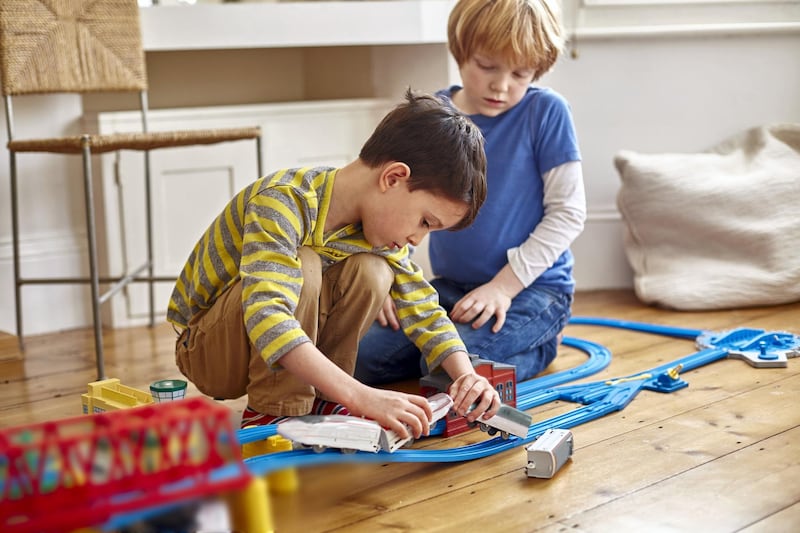My daughters recently started a new term only to find themselves in yet another new school. Change isn't unusual for expat children, who live in an almost constant state of flux, but being the new kid at school is always a big deal, whether it's your first school or seventh. Factor in the myriad ways that the latest place is different and add the things you really miss from where you last called home, and it's easy to feel rather overwhelmed.
For my two girls, who are seven and nine, the seismic change involved in moving country has emphasised the importance of friendships – both the ones they have lost, which have assumed a rosy hue, and the ones they are trying to make. Watching as they head off to school, hoping and praying that today's the day both feel at home among their new peer group, is highly stressful. Will there be smiles or tears come the afternoon? And tomorrow? Here's how to navigate the minefield of children's friendships.
Boys are not like girls. Or are they?
When it comes to making and keeping friends, boys are much more straightforward than girls, or so traditional thinking goes. Boys bond on the sports field, compete with each other, fall out, make up and move on in a blink. Girls, on the other hand, dwell over perceived slights and endure the agony of hurt feelings before friendships are mended. Don't be fooled into thinking that boys value their friendships any less, however – friendships are high on the list of boys' anxieties, particularly in their early teens when the move is made from junior to senior school. Parents should be attuned to changes in their children's social circle regardless of gender because rejection always hurts.
Friendships are critical, possibly even life-saving
Looking back, parents might be tempted to shrug off the importance of the friends they made at school. A few may be in touch with the people they once hung out with when they were eight, others will have replaced school friends with college friends, then work colleagues, their partner's friends, fellow parents and so on.
Friendships are often transient in nature, but that does not mean that they aren't vital in that moment, particularly for young people. As children grow, they change from being open and keen to share to being fiercely private, even defensive about their lives. Helping children to find and maintain positive, nurturing friendships will help them make good choices over bad and give you greater peace of mind.
Friendship is a skill like any other
In Best Friends, Worst Enemies: Understanding the Social Lives of Children, psychologist Michael Thompson lists seven critical skills children need to help them navigate their friendships. They are: sharing, taking turns, caring about others, managing anger, being able to apologise sincerely, a measure of trust and valuing friendship. Helping your children develop these tools from a young age by supporting them to make a wide group of friends will stand them in good stead as they grow.
Remember, it’s their choice
Thompson believes that parents who want to control their children's social lives are set to fail. "Friendship is something natural, like love. It's chemistry," he says. "You simply have to support whatever your child does to make a friend." Any efforts to lead a child away from the "bad" friend they have chosen is doomed to failure.
"The one area of children's autonomy is their friendships, and it ought to be. You ought to support it and not micromanage it." Worried parents can take comfort in the fact that children's friendships are relatively fluid in senior school, and the longest lasting ones, according to academic research published in Psychological Science in July 2015, are the ones in which the friends share similarities.
No (social) problem too small
Psychologist and author Steve Biddulph devotes a whole chapter to friendship skills in his book 10 Things Girls Need Most. He tasks parents with being present and available to discuss their daughters' worries. "Always spend a few minutes getting inside the problem and her feelings before you attempt a remedy or solution," he counsels. "Having this kind of structure to the conversation – listen, explore, analyse – she will start to sound more relaxed, calmed down and ready to get on with her evening. You can check back the next day for how it worked out, but be prepared for it to be ancient history now or replaced by new and different developments."
Encourage understanding
Science writer and teenage well-being expert Nicola Morgan believes that empathy is key to surviving friendships, particularly at school.
"The better we understand other people's behaviour, the better we can manage our relationships and not beat ourselves up when someone behaves in a cruel or thoughtless way." Her book The Teenage Guide to Friends is a powerful friend in itself, and parents could do worse than pop it on their child's bookshelf.






